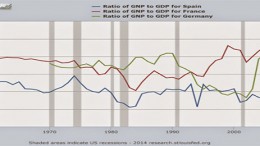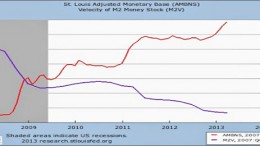Simon Wren-Lewis and the real asymmetry between monetarists and fiscalists
SAO PAULO | By Mark Sadowski via Marcus Nunes’ Historinhas | Simon Wren-Lewis has written a response to a post by Giles Wilkes in which he addresses the nature of the disagreement between monetarists such as Scott Sumner, David Beckworth and Marcus Nunes, and fiscalists such as Paul Krugman, Simon Wren-Lewis and Jonathan Portes. I want to start in the middle because this is the part I have the biggest disagreement with the following statement.




